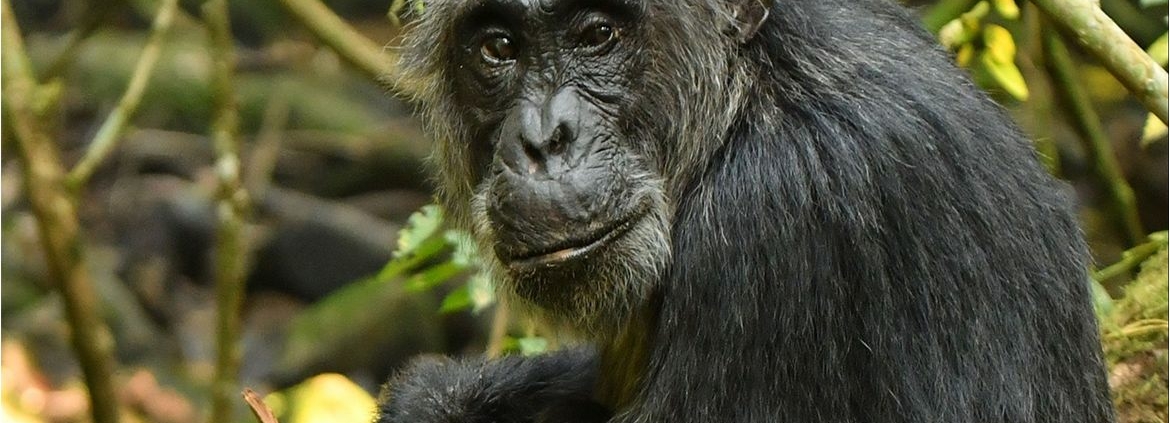Professor Brian Wood: “UCLA researcher finds first proof of menopause in wild chimpanzees”
A team of researchers studying the Ngogo community of wild chimpanzees in western Uganda’s Kibale National Park for two decades has published a report in Science showing that females in this population can experience menopause and postreproductive survival.
Prior to the study, “Demographic and hormonal evidence for menopause in wild chimpanzees,” these traits had only been found among mammals in a few species of toothed whales, and among primates — only in humans. These new demographic and physiological data can help researchers better understand why menopause and post-fertile survival occur in nature, and how it evolved in the human species.
“In societies around the world, women past their childbearing years play important roles, both economically and as wise advisors and caregivers,” said Brian Wood, UCLA associate professor of anthropology. “How this life history evolved in humans is a fascinating yet challenging puzzle.”
Wood, first author of the paper, worked closely with Kevin Langergraber from Arizona State University, Jacob Negrey of University of Arizona, and Ngogo Chimpanzee Project founders and co-directors John Mitani and David Watts.
“The (study) results show that under certain ecological conditions, menopause and post-fertile survival can emerge within a social system that’s quite unlike our own and includes no grandparental support,” Wood said, referring to the grandmother hypothesis.
Continue to read more with the following links:


